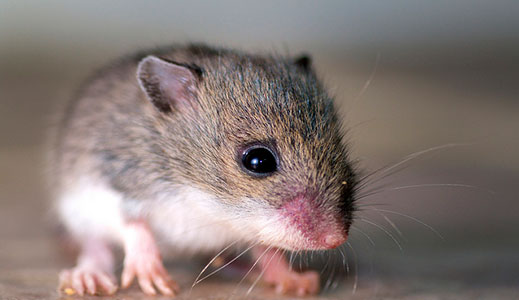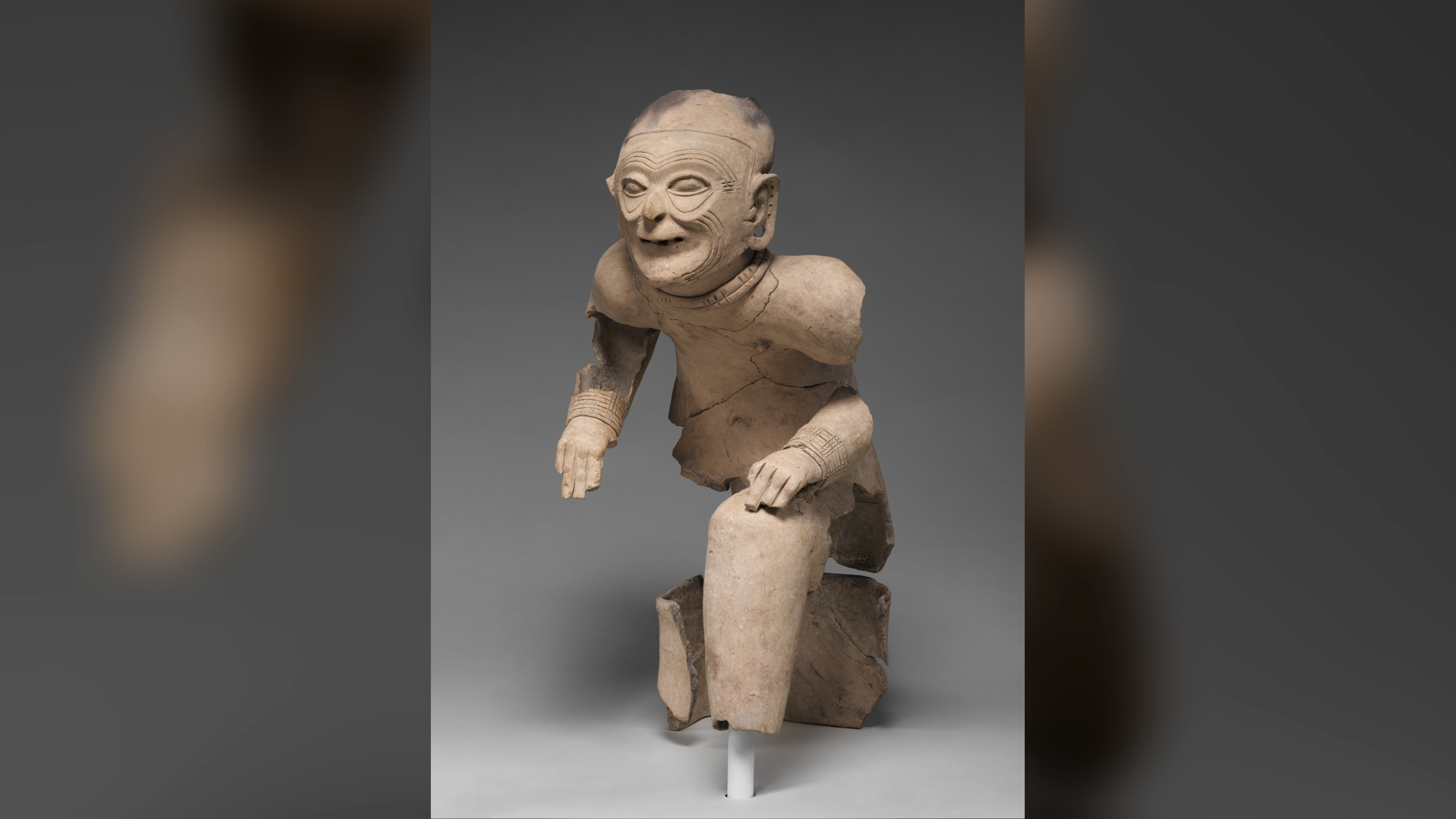
Will We Combat Global Warming, Despite Our Nature? (Op-Ed)

Get the world’s most fascinating discoveries delivered straight to your inbox.
You are now subscribed
Your newsletter sign-up was successful
Want to add more newsletters?

Delivered Daily
Daily Newsletter
Sign up for the latest discoveries, groundbreaking research and fascinating breakthroughs that impact you and the wider world direct to your inbox.

Once a week
Life's Little Mysteries
Feed your curiosity with an exclusive mystery every week, solved with science and delivered direct to your inbox before it's seen anywhere else.

Once a week
How It Works
Sign up to our free science & technology newsletter for your weekly fix of fascinating articles, quick quizzes, amazing images, and more

Delivered daily
Space.com Newsletter
Breaking space news, the latest updates on rocket launches, skywatching events and more!

Once a month
Watch This Space
Sign up to our monthly entertainment newsletter to keep up with all our coverage of the latest sci-fi and space movies, tv shows, games and books.

Once a week
Night Sky This Week
Discover this week's must-see night sky events, moon phases, and stunning astrophotos. Sign up for our skywatching newsletter and explore the universe with us!
Join the club
Get full access to premium articles, exclusive features and a growing list of member rewards.
Raghu Murtugudde is a professor at the University of Maryland's Earth System Science Interdisciplinary Center (ESSIC) and the Department of Atmospheric and Oceanic Science. Murtugudde contributed this article to Live Science's Expert Voices: Op-Ed & Insights.
In a recent article (Human Nature May Seal the Planet's Warming Fate), I used the allegory of "Who Moved my Cheese?" to suggest that people's innate biases may in fact be an evolutionary adaption, one that thwarts the changes demanded by climate change. This in contrast to simpler life forms such as mice: They have seemingly lower cognitive abilities, yet adapt far easier and more willingly to changes in their habitat.
Predictably, some climate deniers suggested I was professing the impending doom of mankind, since humans are not as cunning as mice. But they missed the point: Many pathogens and pests indeed evolve rapidly and become resistant to antibiotics and pesticides, leaving humanity in a constant race to build the proverbial better mousetrap. The scientific evidence is incontrovertible.
Humans are higher level species, but ill-equipped to adapt quickly to habitat loss or other perturbations. Experiments with birds, bees and humans have repeatedly shown there are evolutionary trade-offs associated with higher cognitive abilities, the evolutionary equivalent of the turtle winning the race against the hare.
Adaptation
We possess cognitive and status quo biases, beginning to seek information that essentially confirms our beliefs and even reject facts if they contradict our beliefs or the status quo. Change is hard, as the old saying goes.
Those biases handicap humans into resisting change and seeking evidence to justify predetermined choices, often based on nothing but habitual patterns. Human tendency to discount the future — i.e., preferring to gain $10.00 today rather than wait for $100.00 in the future — adds another obstacle to climate change action. This however, should not be confused with any inherent inability or unwillingness to adapt to change.
Get the world’s most fascinating discoveries delivered straight to your inbox.
The rational mind spins its wheels only when the adaptation path isn't clear, or perhaps more importantly, if the preconceived emotional outcome of the new state — once an adaptation is achieved — is unresolved. [Climate Change Needs an Elephant Whisperer (Op-Ed)]
Swords vs. plowshares
The best example of continuous and willing adaptation is commonplace in two professions: farming and defense.
Farmers are often referred to as professional adapters. Their very existence is founded on adapting to changes in weather, soil and pest conditions each season.
Soldiers live by the adage that the best laid plans may need to be abandoned, once face-to-face with the enemy.
Extensive research has demonstrated responses to climate change elicit differing reactions dependent on the manner in which the issues are presented. For example, providing estimates of how reduced energy usage yields monetary savings is not in itself a sufficient motivation for reducing energy consumption. At the same time, when the same people are shown that higher energy usage is associated with elevated air pollution and exacerbated asthma morbidity among both young and old, significantly higher numbers of people are willing to reduce their energy consumption.
Setting limits
The experiences of professional adapters, like farmers and soldiers, show that while society needs to set "safe" operating limits for biophysical processes — climate change, water and land use, biodiversity — these frameworks must consider the cultural differences in how people around the globe will adapt.
Nobody lives in a global mean temperature, and all global warming is local, so any metric or safe operating space must have regional specificity and be locally relevant. [Michael Mann: Climate-Change Deniers Must Stop Distorting the Evidence (Op-Ed)]
Similarly, cultures or regions that have faced resource limitations and adversities are prone to faster adaptation as compared to those that have not.
Staying on message
All messages about climate change must focus on cultural intricacies and idiosyncrasies to induce the needed behavioral changes. Experiential knowledge plays an important role as elicited by the response of farmers to the weather extremes: They rely on their past experience to adapt, but are also likely to conclude extremes are part of a natural cycle and not an upwards trend. Information sources are also critical, since farmers are found to trust the agroindustry more than scientists or the government.
When trying to convince a target audience to respect those natural limits, that audience's social network is key. Climate change information must travel through appropriate conduits the audiences consider legitimate and trustworthy.
Even though humans may be slower in evolving than some lower life forms, we do possess the advantage of being able to realize that. Advances in genomics and genetic engineering have now shown that evolutionary biology is mature enough to offer us tools to slow down harmful species, while genetically engineering increased populations of benevolent species. We can thus engineer a beneficial environment to alleviate some of the deleterious effects of our own existence.
As we continue to charge forward with our high energy lifestyle with large carbon and ecological footprints, these tools may even become an indispensable component of human adaptation to climate change, especially, for achieving water, food, health and energy security for the planet.
Will humans both fail to recognize the error of not mitigating their impacts on the Earth System? Will we fail to adapt in order to avoid the unmanageable and manage the unavoidable?
Hopefully not, but we may need the mice again to model how to recover from our mistakes. Both mice and men learn to modify choices similarly, based on experiential knowledge. In fact, lab rats often serve as stand-ins models for understanding certain human disorders that involve time estimation tasks. Climate change is, after all, a quintessential task of time estimation for action — a matter of concern for both mice and men, indeed.
Follow all of the Expert Voices issues and debates — and become part of the discussion — on Facebook, Twitter and Google+. The views expressed are those of the author and do not necessarily reflect the views of the publisher. This version of the article was originally published on Live Science.
 Live Science Plus
Live Science Plus











